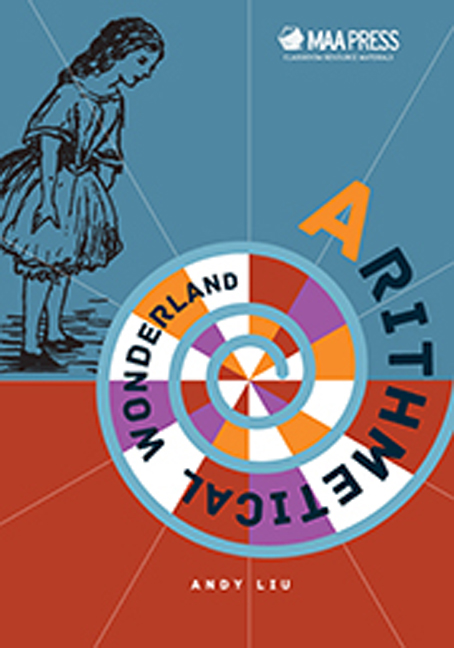Book contents
- Frontmatter
- Contents
- Preface to a Preliminary Edition
- Introduction
- 0 Review of Arithmetic
- 1 Divisibility
- 2 Congruence
- 3 Common Divisors and Multiples
- 4 Linear Diophantine Equations
- 5 Prime Factorizations
- 6 Rational and Irrational Numbers
- 7 Numeration Systems
- Appendix A Legacy of Martin Gardner
- Solution to Odd-numbered Exercises
- Index
- About the Author
1 - Divisibility
- Frontmatter
- Contents
- Preface to a Preliminary Edition
- Introduction
- 0 Review of Arithmetic
- 1 Divisibility
- 2 Congruence
- 3 Common Divisors and Multiples
- 4 Linear Diophantine Equations
- 5 Prime Factorizations
- 6 Rational and Irrational Numbers
- 7 Numeration Systems
- Appendix A Legacy of Martin Gardner
- Solution to Odd-numbered Exercises
- Index
- About the Author
Summary
Alice asked Tweedledum and Tweedledee what 6 divided by 3 was. Both twins said 2, but Alice said, “Wrong!”
They stared at Alice as though she had been munching mushrooms again. After a while, Tweedledum asked timidly, “What is the right answer then?”
Alice took out six tarts she bought from the Queen of Hearts. She said, “There are six tarts and three of us. If I shared them with you, that is 6 divided by 3, isn't it?”
“Yes,” the twins nodded eagerly, licking their lips.
“The correct answer,” Alice said, “is that I get four tarts and each of you get one.”
“But that ain't fair!” they exclaimed.
“I say it is fair, because they are my tarts, and I am a lot bigger than you are. Anyway, what is 1 plus 1 plus 4?”
“That is 6, isn't it?” asked Tweedledee.
“Of course it is. Now is 1 + 1 + 4 = 6 fair?”
They had never thought about that. After a while, Tweedledum said, “Well, fairness doesn't come into addition.”
“Does it come into subtraction or multiplication?”
“No,” said Tweedledee. “So division is somewhat special, isn't it?”
“Indeed it is. There is a tacit assumption that it is supposed to be fair. Then 6 divided by 3 must be equal to 2. Even better news for you, 6 divided by 2 is equal to 3.”
“Hooray!” they exclaimed, and three tarts disappeared down each chute in an instant.
Basic Properties of Divisibility
The binary operation of division is defined as follows. Let a and b be positive integers. Then their quotient b ÷ a is a positive integer c such that b = ac.
The set of positive integers is not closed under division. For instance, 6 ÷ 4 is not a positive integer. A remedy is to expand our set so that it will include more than just the positive integers. This will be done in Chapter 6. Another way is to allow for remainders and stay within the set of positive integers. This will be our approach in Chapter 2. In this chapter, we consider only divisions that are exact, that is, the quotient is a positive integer.
- Type
- Chapter
- Information
- Arithmetical Wonderland , pp. 27 - 44Publisher: Mathematical Association of AmericaPrint publication year: 2015



